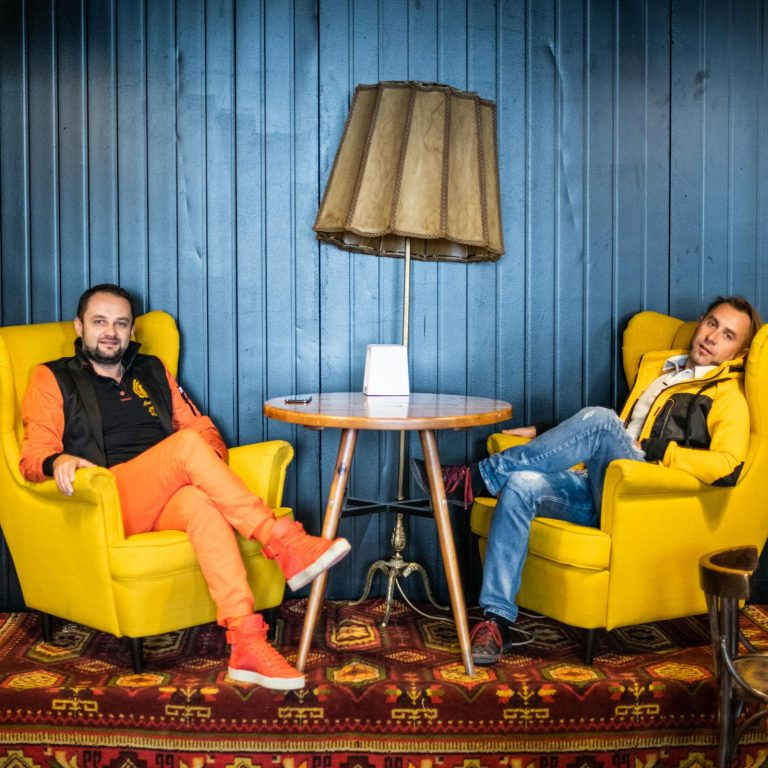A little over a decade ago, Lviv saw the creation of a company that subsequently took over being the city’s brand ambassador. They created or merged brands that linked Lviv with coffee, books, chocolate, beer, festivals, and creative establishments. Lviv restaurants (“kneipps”) spread not only across Ukraine but also in European countries, while Lviv itself developed an association with lineups to cafes and restaurants instead of the long-forgotten scheduled hot water supply.
Ukraine is home to lots of neglected industrial buildings, such as factories and plants. They stay empty for years and have little chance to ever run again, but they can be transformed into modern cultural and educational or entertainment centres. One of the most famous renovated industrial spots in Lviv is !FESTrepublic with its office space, modern manufacturing, and space for visitors. The space’s founder is Lviv “holding of emotions” !FEST, which was created in 2007 by entrepreneurs Andrii Khudo, Yurii Nazaruk, and Dmytro Herasimov. Today, !FESTrepublic brings neglected industrial buildings to life and proves that Lviv’s touristic potential is not limited to the city centre.
The new life of industrial spaces
Since the middle of the last century, post-industrial countries have been actively renovating neglected industrial buildings. Old factories, mines, and steelworks lose their direct function, but they can be transformed into office buildings, cultural and tourist spaces, or hubs. In urban studies, this phenomenon is called revitalization, or renewal, bringing the buildings back to life. As potentially profitable, such buildings have long been of interest to entrepreneurs, investors, and local authorities in other countries.
Successful examples of industrial spaces revitalization can be found in Poland, Germany, the Netherlands, and the USA. For example, a factory of marmalade and canned food in Warsaw was transformed in 2003 into the cultural and educational centre Fabryka Trzciny, which is popular among tourists.
If you are interested in a more detailed look into designing cultural centres and transforming old buildings into cultural spaces, you can download the book ”Design handbook for cultural centres”, which was published under the program “Culture and Creativity” by the EU and the Eastern Partnership.
Polish city Lodz saw dynamic development during the Industrial Revolution, similar to British Manchester or American Detroit. In Lodz, there are especially lots of examples of industrial revitalization. The most notable example is the multifunctional shopping and entertainment centre Manufactura that, since 2006, operates in the premises of a former factory. Art centre Fabryka Sztuki in Lodz shows an example of the combination of state and private partnership. Formally, the institution is owned by the city, but different organizations are involved in funding and decision-making.

Concert hall Melkweg in Amsterdam operates in the building of a former dairy factory, having existed since 1970. The establishment’s team organizes almost all exhibitions and parties on their own. French cultural centre Mains d’Oeuvres is located in suburban Paris in the building of the former auto parts plant Valeo. Since 2001, it helps promote contemporary art.
The list goes on. Of course, such centres have different histories, different organizational structures, different levels of profitability, and so on. However, revitalized factory buildings are beneficial for everyone because they create a place for city citizens’ education and recreation, as well as generate a stream of profit for businesses and taxes for local communities’ budgets.

!FESTrepublic
Practically every Ukrainian city has industrial facilities. The recent years have seen quite a few examples of their successful transformation. Those are IZONE and art factory “Platforma” (“Platform”) in Kyiv, Fabrika Space in Kharkiv, “Promprilad” in Ivano-Frankivsk etc.
In 2015, !FEST, a network of creative projects, acquired a neglected factory “Galychsklo” (“Galician Glass”), which was located in one of Lviv’s industrial neighbourhoods. The factory had previously manufactured glass for the pharmaceutical industry but later went bankrupt and was left empty for 10 years. !FEST’s founders Andrii Khudo and Yurii Nazaruk recall that when they moved into this building everything was practically in ruins:
— What we received was practically zero. I don’t know, perhaps that’s just growing pains, but we got used to working in an ancient architectural environment, and we wanted to preserve at least some pieces of it, for it not to disappear. Because we understood that a lot of people in the city needed a space of identity. When you hold some presentation here, you understand that this place has its history and identity. That’s why we apply an evolutionary approach: you preserve something and bring something new. We are changing this territory by small steps.

Yurii Nazaruk and Andrii Khudo decided to move into a new space after they had realized the old office lacked room. On the two-hectare territory, they set up both the new office for the team and the space for visitors. The whole compound got the name “!FESTrepublic”. It hosts workshops, a bakery, a warehouse, and more. There are also designated places for festivals and parties. The balconies of the !FEST main office are stylized with bird nests:
— When the team moved, there were only ruins here. That’s how we came up with an idea to make a nest as a place where something is born. When you enter the head office itself, you see eggs hanging from above. In general, there is a feeling that the combination of differences produces synergy. To combine and try things out, you need space. The easiest way is to find a non-commercial building, either outside the city or on the territory where something has been abandoned. There are many factories of this kind in Ukraine, such things need investment. These true projects are developing in an evolutionary way.

The company’s office is located in a five-storey building. Each floor has its own “streets” with ironic names, while each employee or table has “the building’s number”, in other words its own address. This way, the office is divided into quarters: the financial department is on the second floor, the supply office on the third floor, project and creative teams on the fourth floor, while the holding’s administration is on the fifth floor. On the fourth floor, there is a ladder which leads directly to Yurii Nazaruk’s office:
— Here, on the fourth floor, you can see a direct way to my office. We have agreed that “my people” can have a priority right to enter my office, no matter what is going on in the office at the moment. Because, when you come upstairs, there is an official reception point, and everyone has to answer where they are going, whom they want to visit. Here, you can just open the hatch and climb up when you want. It’s used a few times a week, no more. I also use the ladder sometimes.
In the fall of 2016, the company opened !FESTrepublic Club, which hosts discos and parties. The owners kept the industrial style of the building but modernized it with quality sound and illumination. Andrii and Yurii say that this club became the first project implemented on the territory of !FESTrepublic:
— It’s more of an event hall than a nightclub. We wouldn’t want to become a nightclub from the value viewpoint because it ends up with whores and drugs. It’s not the way we want. We do music and hold, for example, rock musicals here. Music can also bring money.

The summer of 2018 saw the opening of !FEST Coffee Mission Hub. It has a coffee lab, which is equipped for coffee cupping (tasting). The hub also holds workshops and coffee schools. Yurii and Andrii explain that the hub has specialty coffee from farmers. Specialty coffee is comprised of high-quality arabica beans, which is among the most expensive varieties of coffee on the world market. For this coffee, producers specify not only the country of origin but also the concrete region and plantation:
— We ourselves went to El Salvador, Guatemala, Honduras, and Nicaragua this year. We met with farmers, got acquainted with them. You have to see whom you are paying money. Our team has picked good varieties of coffee, and they are holding coffee tastings at the moment. As for choosing the “specialty” segment of coffee, we understood that we needed to go deep into niche projects. Because it seems that specialization is the future. The logic of this project is to directly connect the manufacturer and the consumer. People want to look in the eyes of a person who made the product they consume.

According to the founders, the main goal of !FEST Coffee Mission is to change the culture of drinking coffee. They view accustoming the clients with quality coffee, authentic chocolate, and craft beer as a long game because it requires a lot of money and time to be invested:
— When we started going into specialization, one of our first projects was beer theatre “Pravda” (“The Truth”). The fact that the Rynok Square hosts a brewery that sells its products to over 10 countries is unique for this part of Europe. It’s our private pride, but it wasn’t reflected on our commercial profits. You don’t immediately get used to a new, better product. A person tries it for the first time and says, “It’s not beer at all.” Because whole generations grew up drinking beer that was an entirely different substance. You try it for the second time, get used to it, and don’t go back to past habits. The same happens with chocolate, and the same is with coffee. Then a consumer thinks, “I’d rather wait until weekends, drink that small bottle of beer, but I will take pleasure from that product.”

Holding of emotions
For more than 10 years, !FEST, the network of conceptual establishments, has been creating signature restaurants not only in Lviv but also in other Ukrainian cities and abroad. The holding’s famous projects include “Kryjivka” (“Underground Bunker”), a Lviv restaurant styled with the times of Ukrainian nationalist insurgency, as well as “Lviv Chocolate Factory”, “Lviv Coffee Mining Manufacture”, “Masoch-café” (styled with the themes of Leopold von Sacher-Masoch’s works), “Piana Vyshnia” (“Drunk Cherry”), and many others. !FEST founders admit that they feel responsible for “exporting Lviv throughout Ukraine”:
— Some time ago, I was on the main street in Odesa to drop by “Piana Vyshnia”, which we opened there. I take a look at the street and see “Lviv Chocolate Factory”. There are also some “Lviv Liquors”, “Lviv Croissants” nearby. I stand there and think, “Am I in Odesa at all? Or is it a piece of Lviv?” But it’s very simple: if the formats have a strong foundation, they will work. If someone just exploits the brand and tries to earn money, it won’t last for long.

One of !FEST’s first big projects was restaurant “Kryjivka”, which still serves as a symbol of the brand and of tourist Lviv in general. The company’s founders recall that they started with shared values, immense belief, and risk:
— We believed in this undertaking so much that we risked with all our money for “Kryjivka”. We invested in this restaurant everything we had. Apparently, it was this belief in the idea which united us, this strong desire to create something by your own, something successful, and change the city. Because, 11 years ago, the Market Square was a parking zone. There were some restaurants, people ate and drank, nothing special. I think that, since then, we’ve given some boost for the market, it also started to grow. We got to tourism intuitively; now, there’s a big competition in this sector, and it’s great. The restaurant industry is growing and changing. This competition takes us forward.
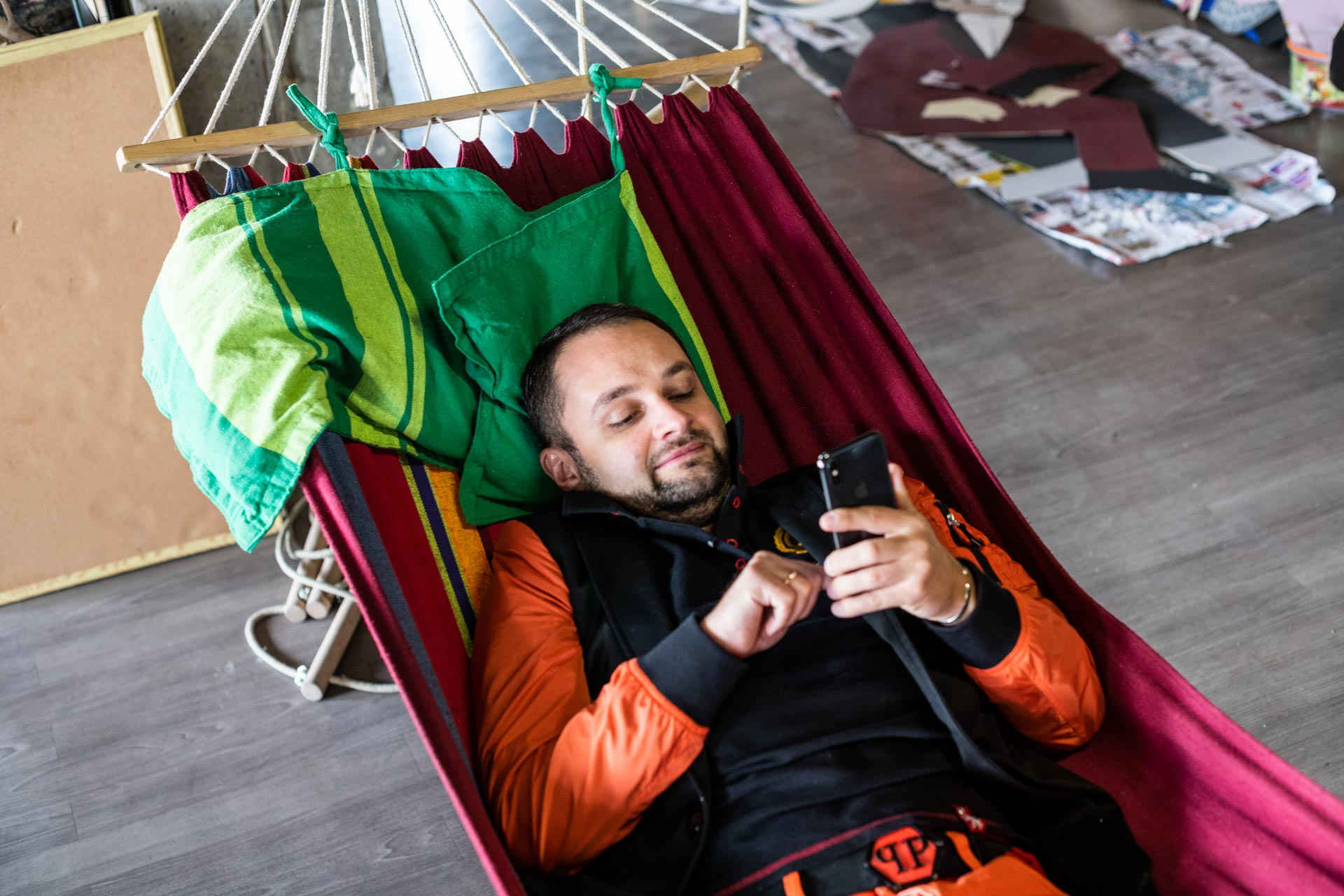
Andrii Khudo and Yurii Nazaruk say it’s not easy to ensure that all establishments and franchises in other cities work coherently. For that, it’s important to find the right partners for whom their business will be the way of life:
— From the very beginning, we have been building a value-based company. This principle runs through each project because you can’t run Russian pop in your establishment and open “Lviv Croissants”. Such projects stay unnoticed and die. In turn, we are talking about taking a piece of Lviv and moving it somewhere. Moving what we think is Lviv. I can’t work with an Odesa format in Odesa. Sorry, I’m not from there, I don’t feel that city, so I don’t think I would succeed. But it’s really successful when it goes as an investment, opening Lviv-branded establishments throughout Ukraine. That’s why it’s all is so coherent, and we keep an eye closely on it.
Andrii Khudo and Yurii Nazaruk believe that the environment is important for business. The combination of a right place and hard work does its job:
— Civil society is working here [in Lviv], people can communicate. There aren’t a lot of cities in Ukraine where entrepreneurs really meet, communicate, criticize the authorities, try to negotiate with the authorities, elect them. We are also a consequence of the right environments in the city. School, publishing house… It would be much cooler to invest money in a casino, but we understand that with these things, you took, you gave, and that’s how it works.
In the summer of 2018, !FEST became a co-owner of the famous Lviv cafe and art centre “Dzyga” (“Spinning Top”). The founders plan to keep the purpose of the art centre, the name, and the art gallery:
— As the company’s founders, we’ve been united by business. We view our projects as business. It’s okay when people want to do something, make money of it, take care of themselves, their family, and, in the end, of the world. So, this post-Soviet perception that business is evil… We think that it needs to be changed. One of the things we missed in “Dzyga” is a somehow contemptuous attitude to business and money. Because we paid more attention to art, but there has to be a balance. When you have business, you can develop art. But when you neglect it, you end up both without business and without art.
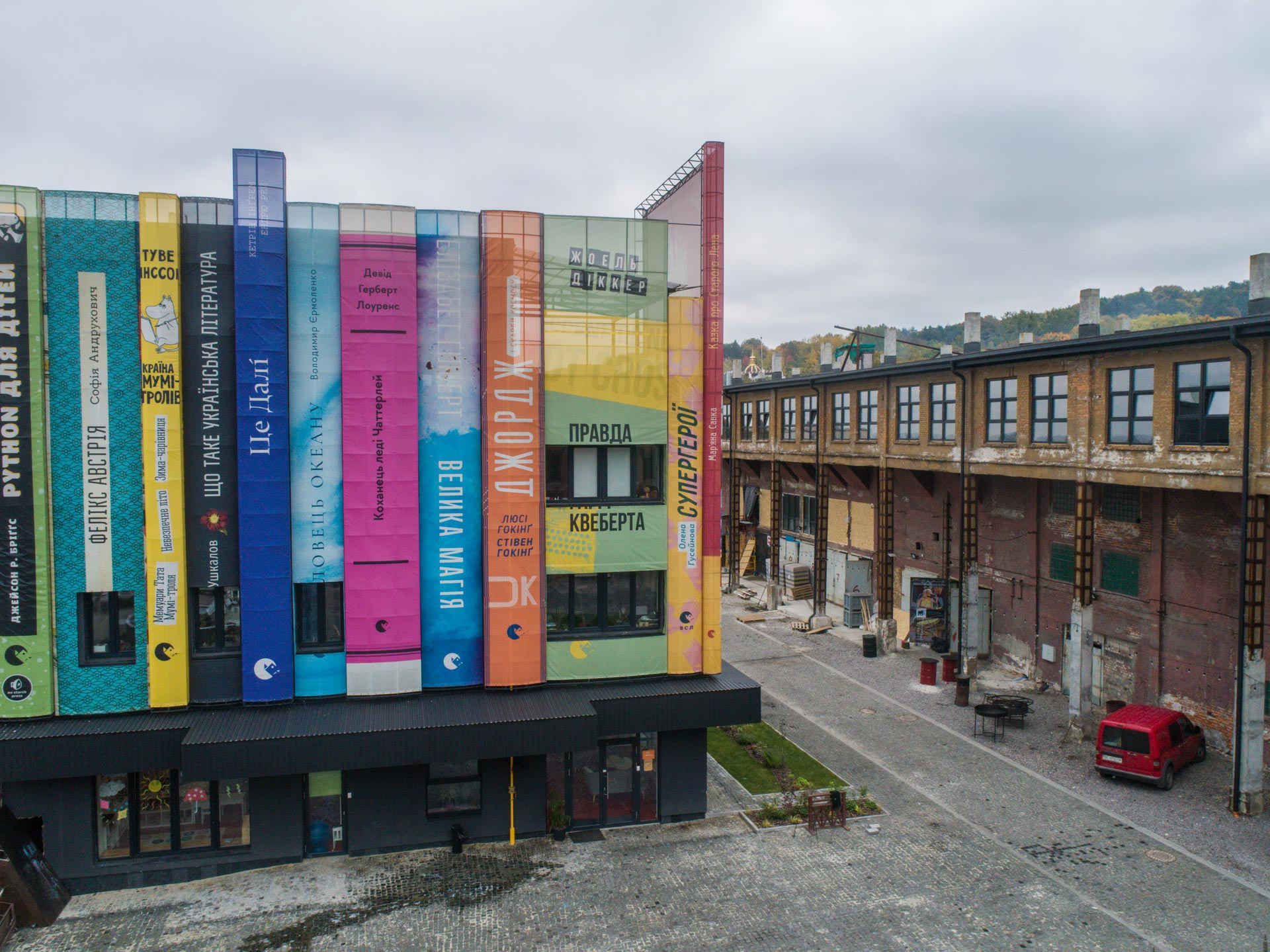
Staryi Lev Publishing House
In 2010, holding of emotions !FEST became a partner of “Staryi Lev Publishing House” (“The Old Lion Publishing House”), helping it with management and capital. The publishing house’s co-founder and editor-in-chief is Mariana Savka. Its main office is located on the territory of !FESTrepublic. The external facade of the building resembles a big bookshelf:
— When we decided to go into the publishing business, everyone said, “You are fools, it’s a publishing house of Ukrainian books. It’s the least promising business possible in this country.” Today, we are entirely sure that it’s both good business and an extremely interesting job, an absolute success story for Ukraine.
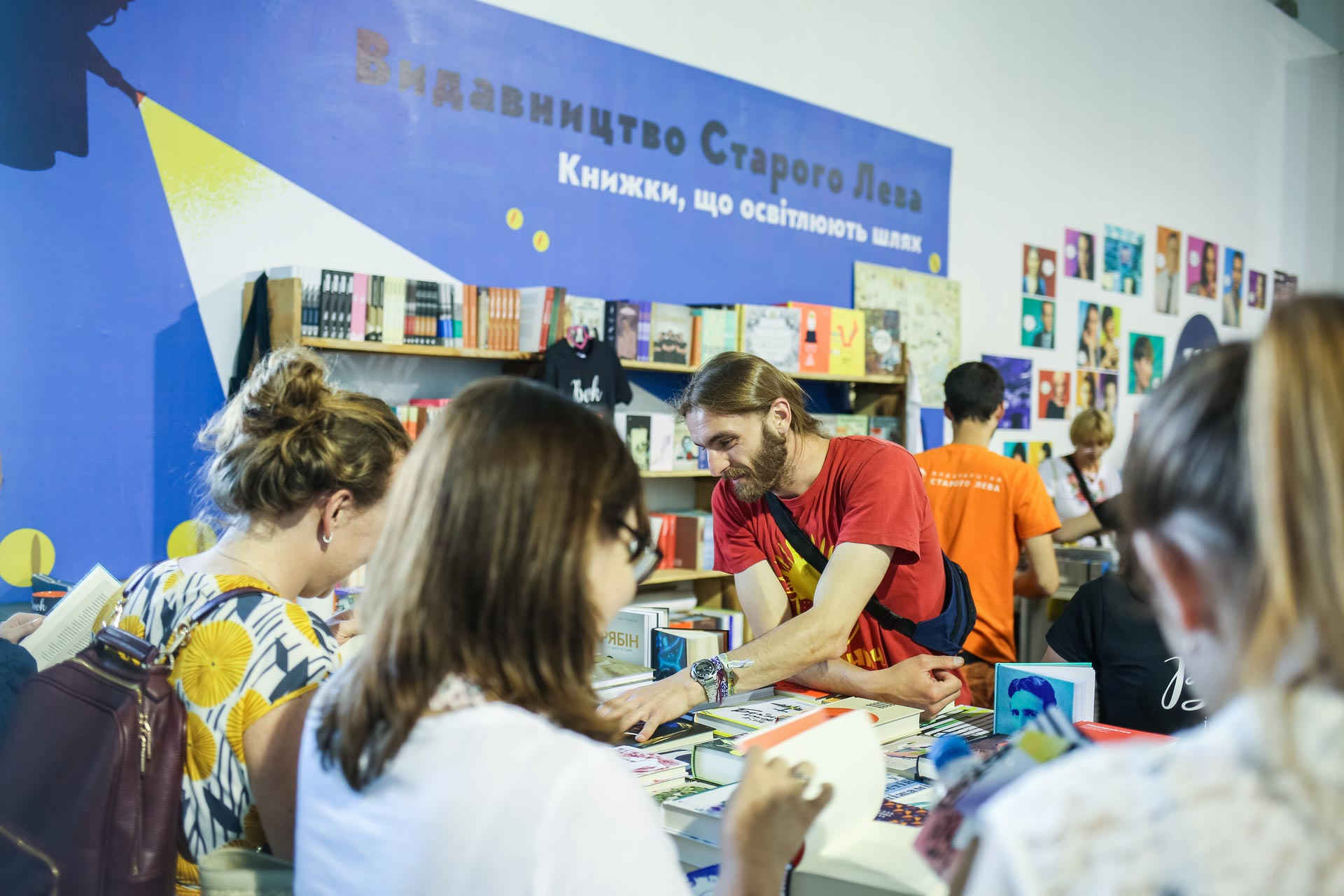
Yurii and Andrii say that the publishing house sells rights to publish its books to different countries, from Argentina to France and Slovenia. Besides, “Staryi Lev” actively represents Ukraine at international exhibitions:
— In South Korea, children read Taras Prokhasko’s books about little moles. That’s cool. Of course, we haven’t profited from it, and neither has Prokhasko, but it’s very cool when Ukraine starts producing meanings for export.
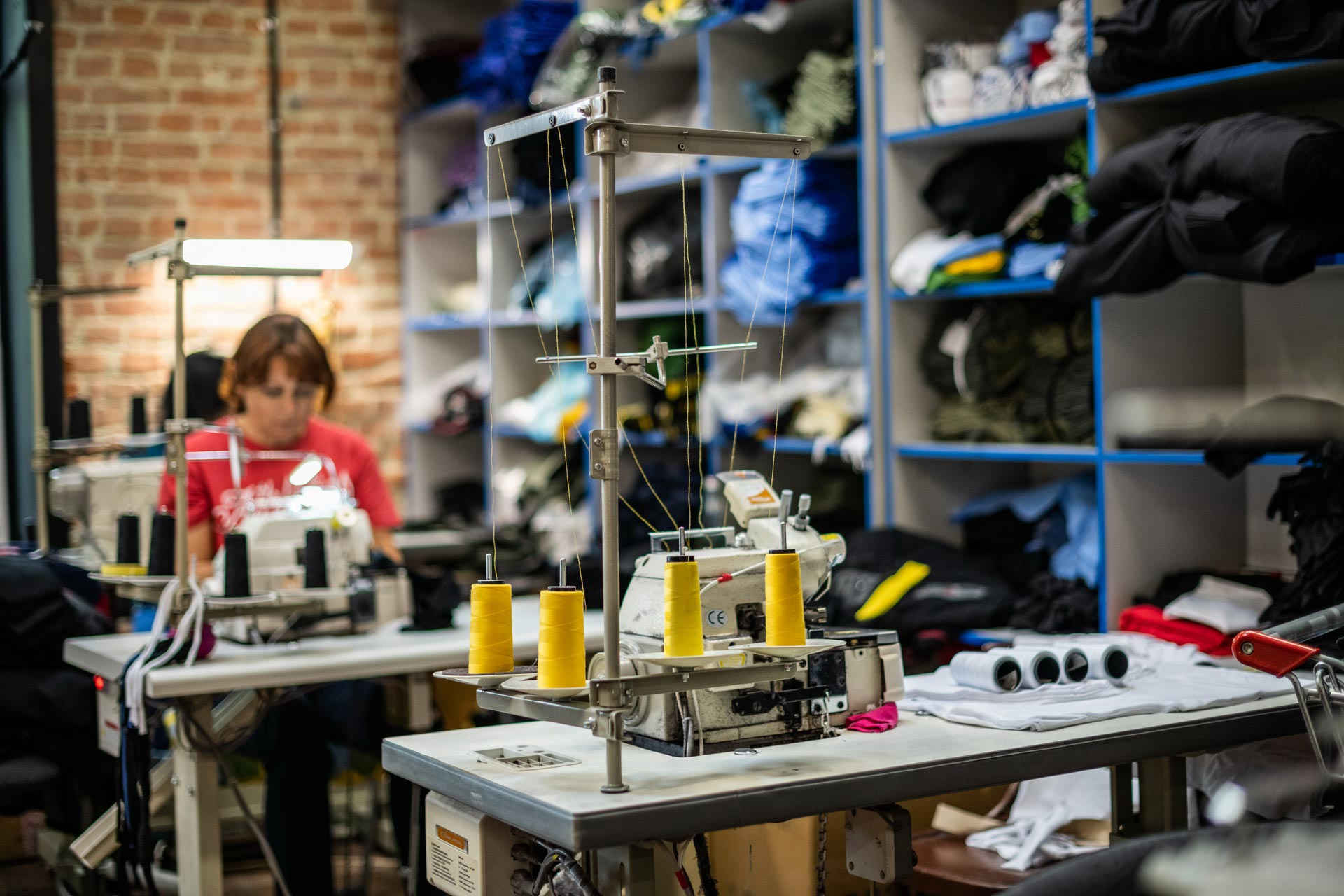
Aviatsiya Halychyny
In 2015, !FEST, together with designer Uliana Barabash, created the brand of clothes called “Aviatsiya Halychyny”. The founders explain that this brand has been inspired by the new Ukrainian army and the idea of freedom. The same space, !FESTrepublic, hosts workshops where the design is created and the clothes are manufactured. But why the theme of aviation?
— Firstly, we ourselves are interested in aviation and flying. Secondly, we were thinking about how clothes reflect a person’s identity. It’s great when we support our army. But, at the same time, we wear “Alfa industries” every day. It would be cool if we started taking pride in what’s ours. It would be more inspiring. And these clothes, as we say, are worn by both soldiers and people who help the army.
“Alfa industries”
American company that creates clothes in the military style.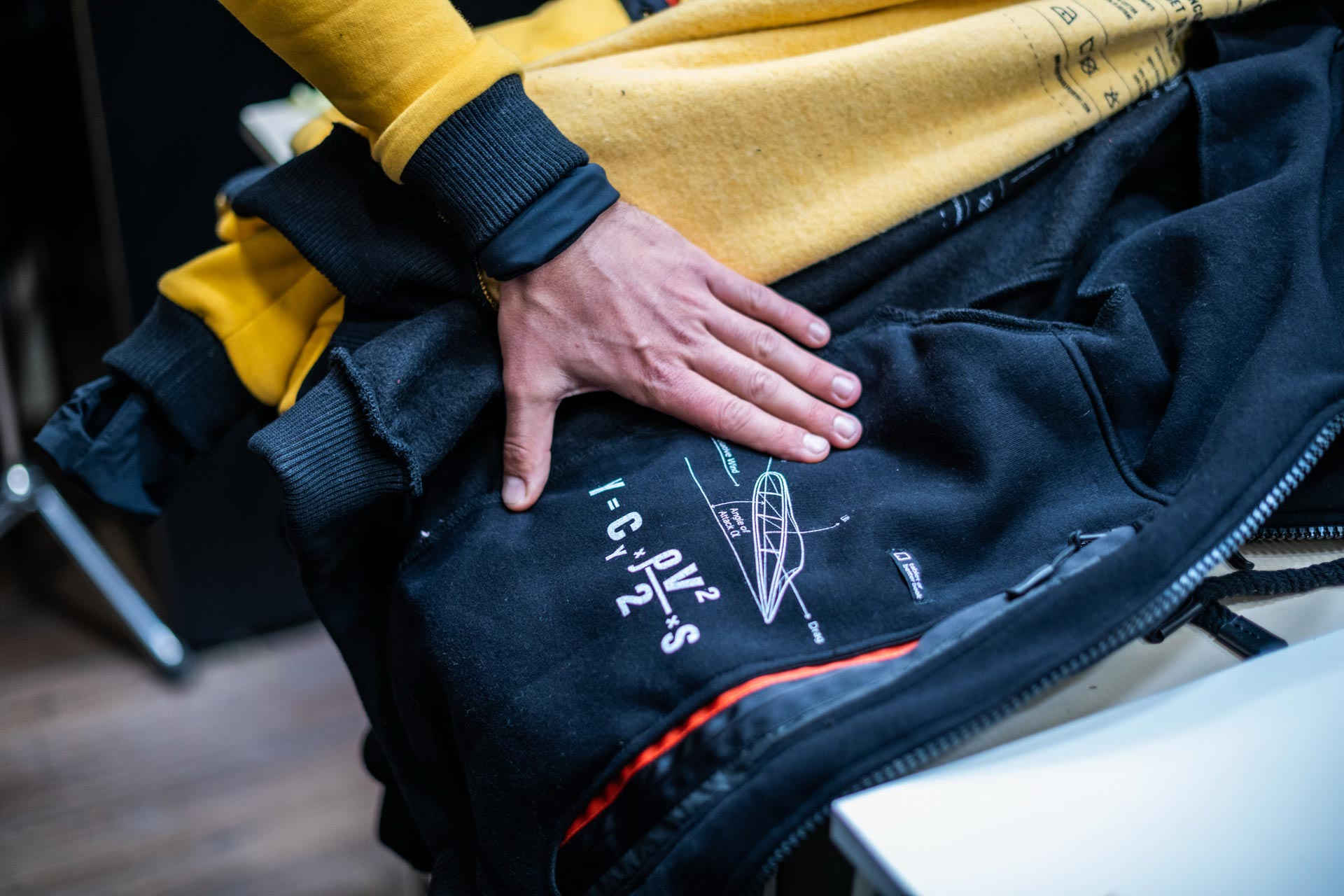
The brand’s designers create chevrons and illustrations both after real military units, companies and persons (for example, Second World War “Night Witches”, aircraft Antonov An-225 Mriya, aviation constructor Igor Sikorsky, and 7th Separate Army Aviation Regiment of the Armed Forces of Ukraine) and for fictional plots (for example, Telesyk airlines — Ivasyk-Telesyk is a hero of a Ukrainian folk tale — and the Hutsul Space Program).
— It turned out that visual identity really inspires people. For a polo shirt styled with the theme of our military brigades, we took their current symbols with Soviet basis and the guelder rose (guelder rose is one of the folk symbols of Ukraine) on top and started changing it, even without prior approval. It reached its peak when we had a visit from the commander of the military aviation, who really was here today and in the war zone in Luhansk the next day. And we agreed with him that we would fully develop the identity for our pilot team, which flies at all air shows around the world, and we manufactured the polos, presented them to the team, and that’s how it went.

School of Open-minded Kids
In the fall of 2017, !FEST, along with the network of kindergartens “Funny and smart”, started the first wave of enrollment for the School of Open-minded Kids. It’s the project of alternative school education, which works in the full-day format and offers harmonic development for children.
— There are two motives behind founding this school. Firstly, the company reached that level when we have more than 1,000 employees and you begin influencing the public opinion. We can help make the country better, make the city better. Sometimes you have to start from scratch, meaning from school. It’s also a personal motive because there’s no possibility now to work constantly on your own children’s development, but there’s a desire to create a favorable environment for them. The second motive is the development of infrastructure. People take into account this factor when they decide whether to leave the country or stay here. And when you decide that you want to live here, you start implementing what should have been implemented by the government instead.
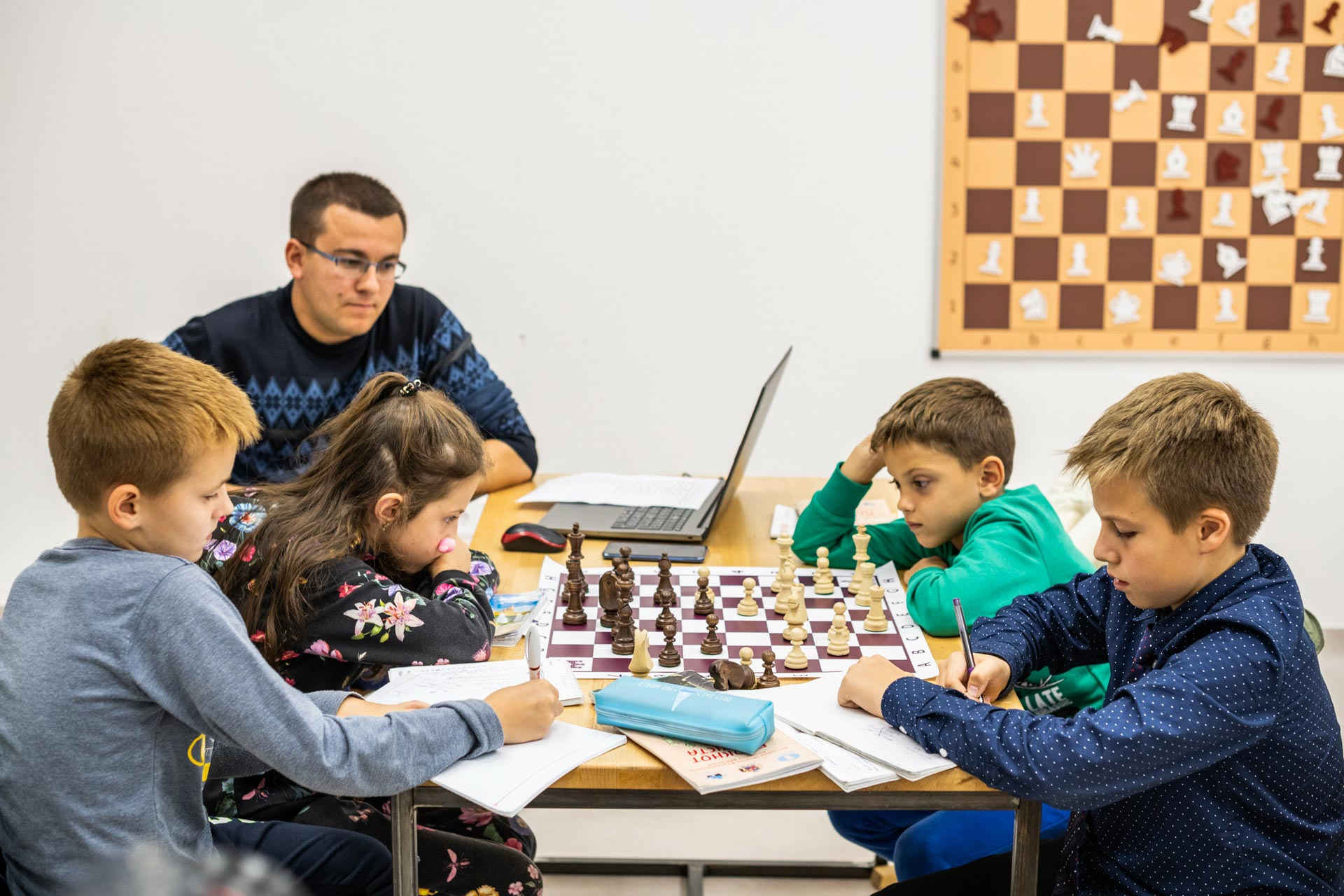
The project’s peculiarity is its focus not only on the general school curriculum but also on the physical and cultural development of students. For example, the school pays attention to the skill of riding a bike, providing emergency medical help, cooking, using search engines, and so on. Children spend a third of all classes outside:
— Teaching a child how to swim is just as important as teaching them how to count. We understand that education is a very inert thing, people have got used to doing everything in a certain way. The world has changed very significantly for the last ten years, but what we do with children doesn’t get to change.
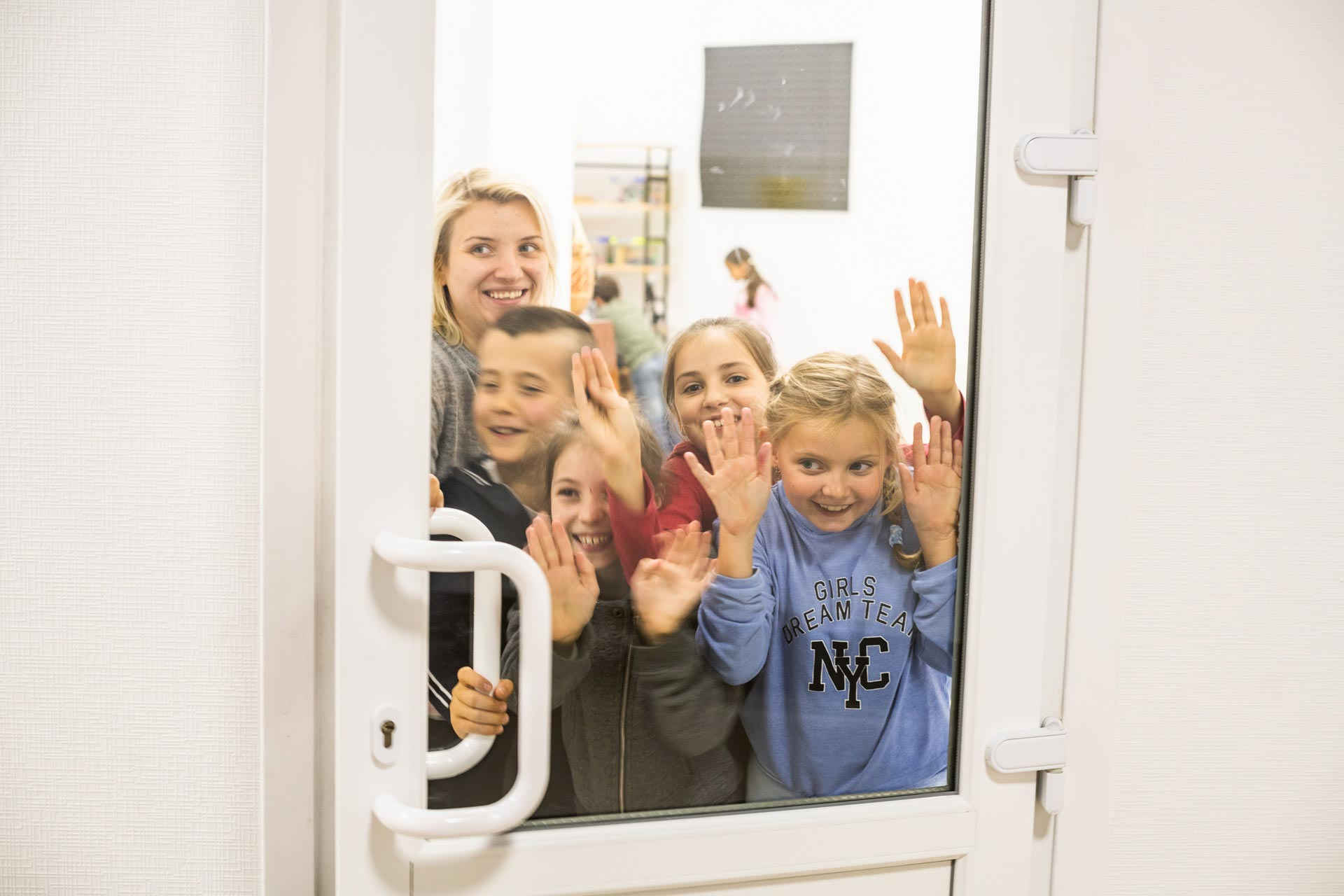
And the best thing about private education is that you can implement any innovations faster, `almost immediately.
It took two months from the emergence of the idea to the school’s creation. During this time, the founders coined the concept, found a space, and recruited the team and students. And while the people around don’t always accept innovations in education easily, the entrepreneurs are sure they are going in the right direction.
— We don’t have a goal to create the best school, the goal is that all schools are cool. We don’t want only children in this place to be awesome. We want everyone to be awesome because our children will live among all of them. Thus, we set ourselves a goal — five schools in the city, 100 schools in Ukraine. And building the whole system from the beginning so that it has a big impact on the whole system of education.

